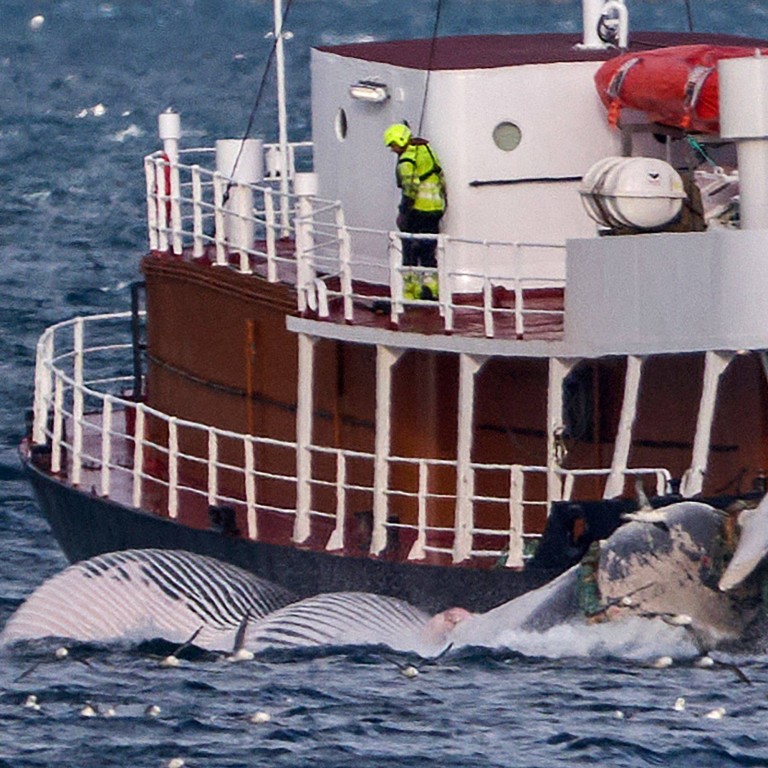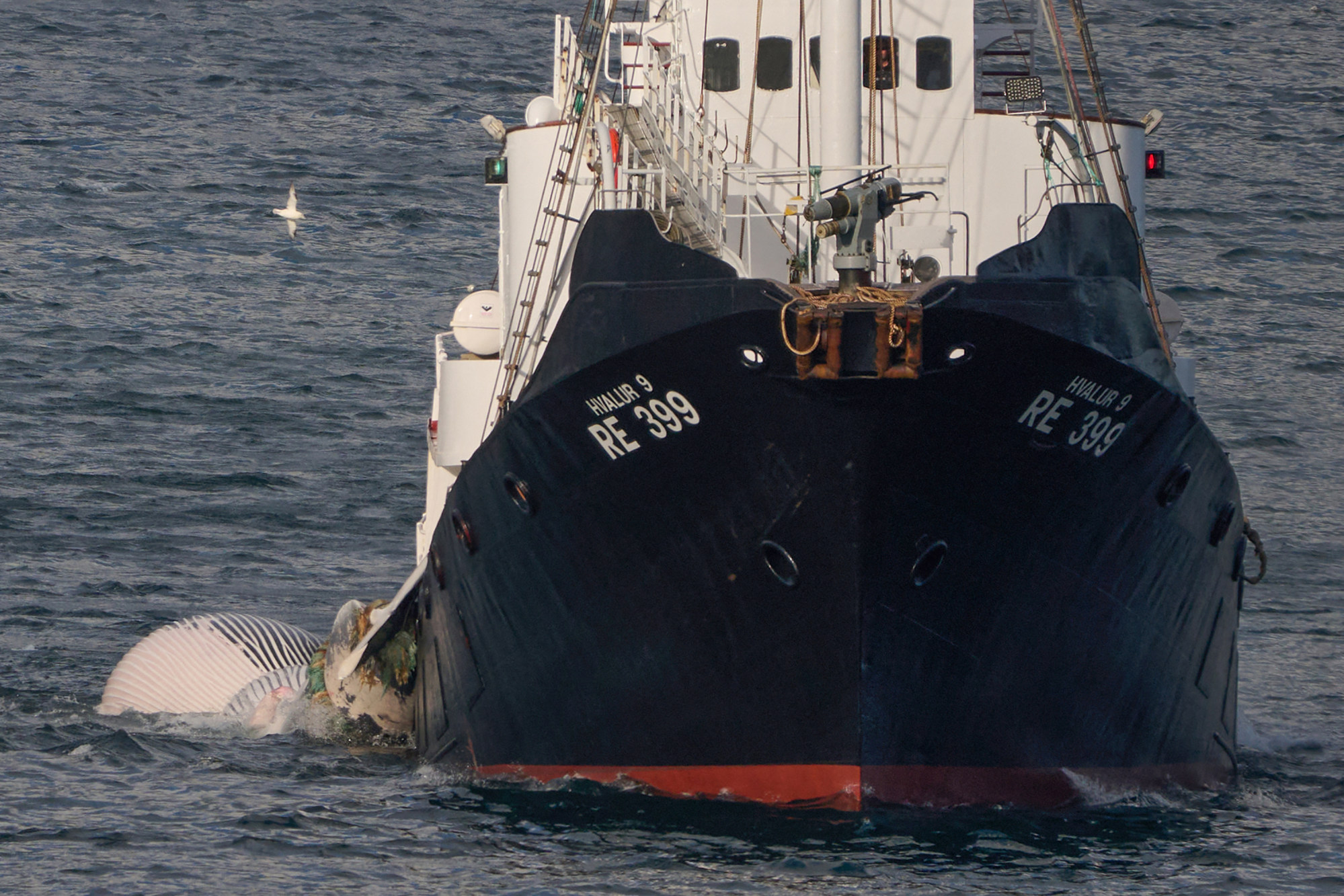
Iceland resumes whale hunting after temporary ban, but slaughter needs to be faster
- Iceland lifts temporary ban on commercial whaling imposed in June, but with stricter requirements on hunting methods
- Iceland, along with Norway and Japan, is one of a handful of countries that still allow commercial whale hunting
Iceland’s government said it will resume hunting fin whales after a two-month halt, but with new guidelines aimed at killing them as quickly as possible to reduce suffering.
Iceland resumed hunting fin whales, which can reach lengths of over 20 metres (65 feet), in 2006 after a 20-year pause.
The International Whaling Commission – a global body that oversees whale conservation – imposed a moratorium in 1986 after some species came close to extinction.
Although several are still endangered or even on the brink of extinction, Iceland, along with Norway and Japan, have resumed commercial whaling.
The hunting will be resumed after a government working group concluded that it was possible to improve the hunting methods.
Roger Payne, scientist who discovered whales can sing, dies at 88
“A Regulation will be issued that will include detailed and stricter requirements for hunting equipment and hunting methods, as well as increased supervision,” the Ministry of Food, Agriculture and Fisheries said in a statement on Thursday.
Iceland’s public broadcaster said whale hunters would be required to complete a course in whale biology, pain perception and stress.
They will be also provided with detailed instructions of how to harpoon the animals to make sure that they die quickly.
Humane Society International, an animal welfare advocacy group, condemned the move as a “devastating” rejection of an opportunity to “do the right thing”.
“There is simply no way to make harpooning whales at sea anything other than cruel and bloody, and no amount of modifications will change that,” said Ruud Tombrock, executive director of the group.
The country has only one remaining whaling company, Hvalur, and its licence to hunt fin whales expires in 2023.

Another company hung up its harpoons for good in 2020, saying it was no longer profitable.
Annual quotas authorise the killing of 209 fin whales – the second-longest marine mammal after the blue whale – and 217 minke whales, one of the smallest species.
But catches have fallen drastically in recent years due to a dwindling market for whale meat.
Opposition to whaling has been on the rise in Iceland with a majority now in favour of dropping the practice.
Why a new Japanese whaling ship is good news for animal welfare campaigners
A survey published in early June indicated that 51 per cent of Icelanders were opposed to the hunt and 29 per cent in favour, with over-60s those most in favour.
Iceland has depended heavily on fishing and whaling for centuries.
But in the past two decades its tourism industry, including whale watching tours, has blossomed – and the two key sectors of the economy have diverging interests.
Japan, by far the biggest market for whale meat, resumed commercial whaling in 2019 after a three-decade hiatus, drastically reducing the need for imports from Iceland.
Additional reporting by Agence France-Presse and Associated Press

